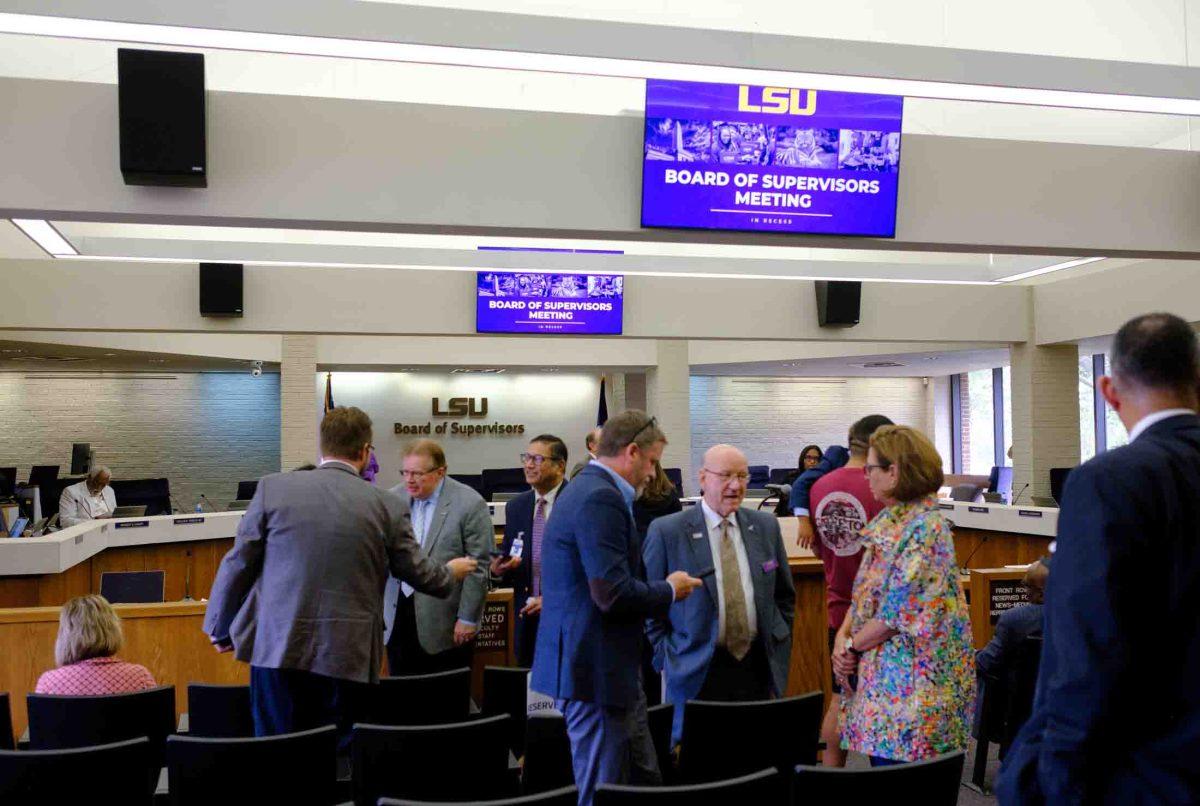LSU’s Board of Supervisors convened Friday to decide matters academic, athletic, financial and facility-oriented.
In the moments before the meeting began, soft conversations echoed off the walls. Suits drifted among the seats, ties settled among the suits and lapel pins glinted in the spotlights. Many dress shoes scuffed the floor; many plaid socks settled inside the shoes. White cuffs peaked from coat sleeves. A police officer sat in the dark corner by the door.
The board members slowly found their seats.
At the center of the horseshoe as the head of the room, Chairman Valencia Sarpy Jones banged her gavel three times, calling the meeting to order. The air quieted, settled. Seats popped and creaked. The LSU chapter of the Pershing Rifles presented the colors, followed by an invocation, followed by the Pledge of Allegiance.
Among the most pertinent agenda items, the board approved LSU’s fiscal year 2023-24 operating budget at the meeting, including:
-
$9.8 million in funding to invest and expand artificial intelligence, analytics and bioinformatics at LSU;
-
$17.9 million in faculty and staff raises; and
-
$67.7 million for upgrades to campus safety and emergency systems.
The board also:
-
passed a motion to establish a master’s program in interior design at LSU;
-
discussed a new initiative from the Pennington Biomedical Research Center called “Greaux Healthy”, which seeks to lower childhood obesity rates in Louisiana; and
-
approved several contract extensions for LSU’s athletics staff, including a $36 million deal making Kim Mulkey the highest paid women’s basketball coach in the country.
The LSU Board of Supervisors is a “constitutionally empowered board,” formed by Article 8, Section 7 of the Louisiana Constitution. According to law, their onus includes supervising and managing the institutions and programs administered through the LSU system.
The board is composed of two members from each congressional district and three members from the state at-large, who are appointed by the governor with confirmation from the State Senate, as well as a student member, who serves a one-year term and is elected by the LSU Council of Student Body Presidents.
Communications to the board from those officially affiliated with the university can be filed in writing to the LSU President, per Article VI of the board Bylaws. The Bylaws also outline communications from student organizations, faculty members and campus staff, which are channeled to the president by way of the chancellor or the president’s designee.
The board’s next meeting will be on Oct. 20, for which the agenda item submission deadline is Sept. 20. Further information, past meeting agendas and meeting videos can be found on the board’s website.





